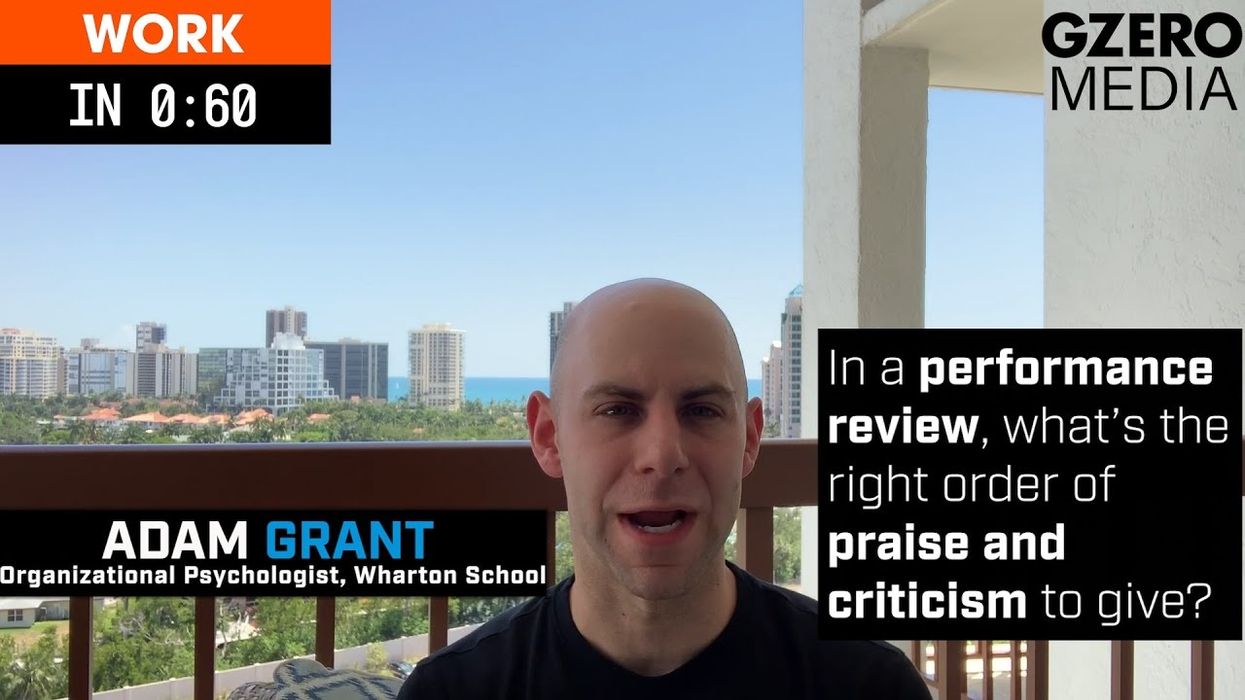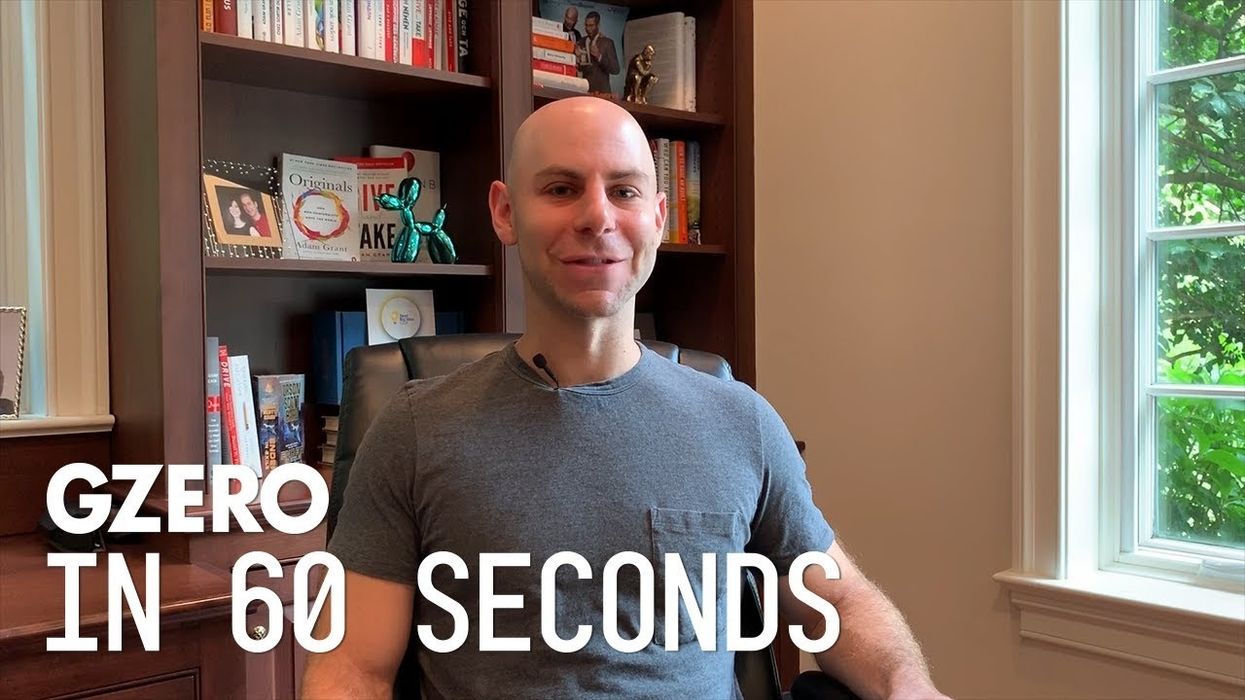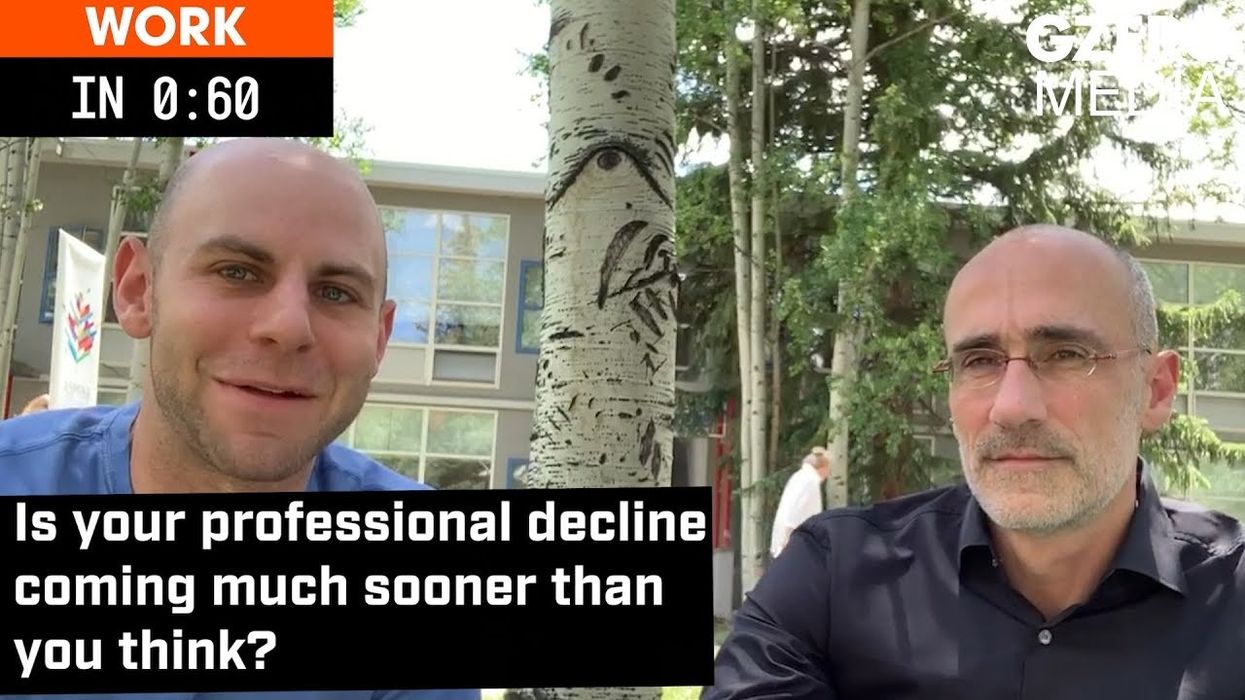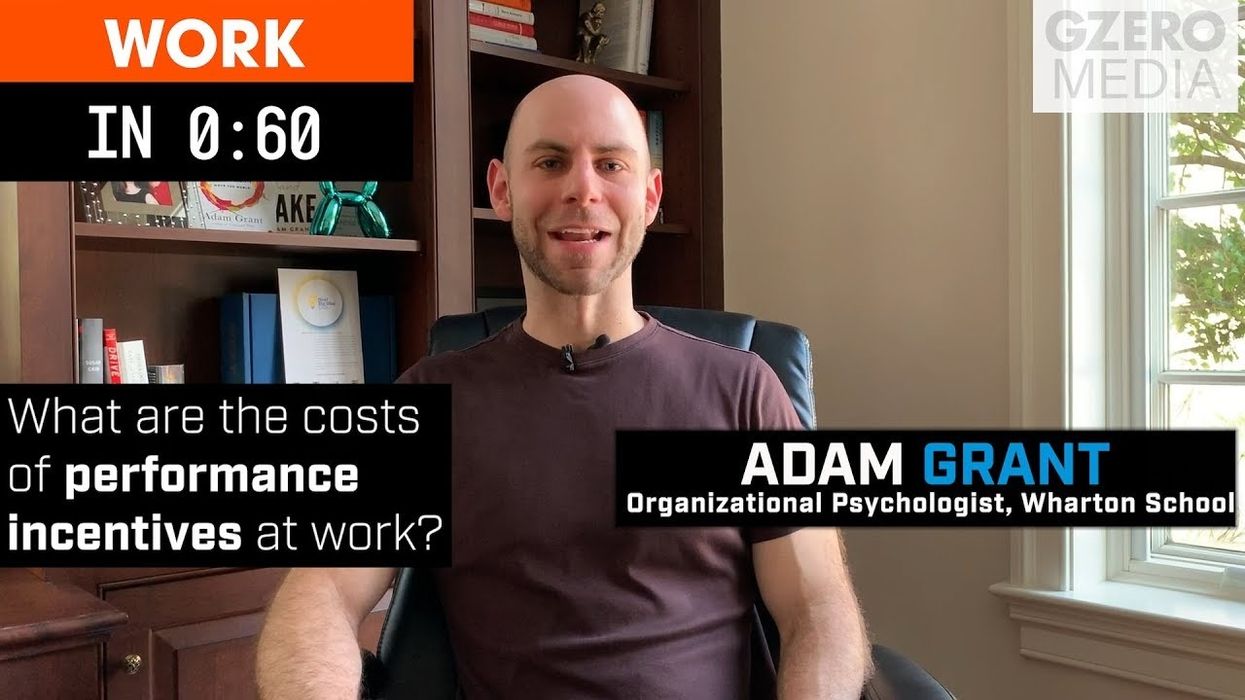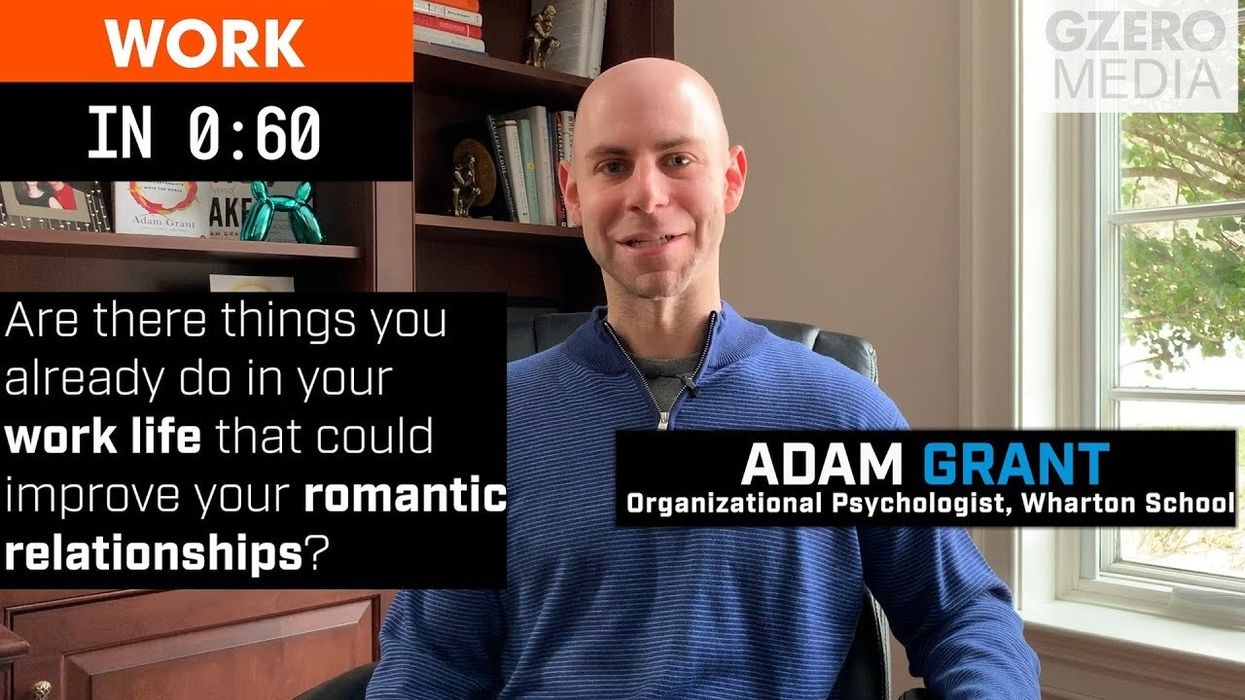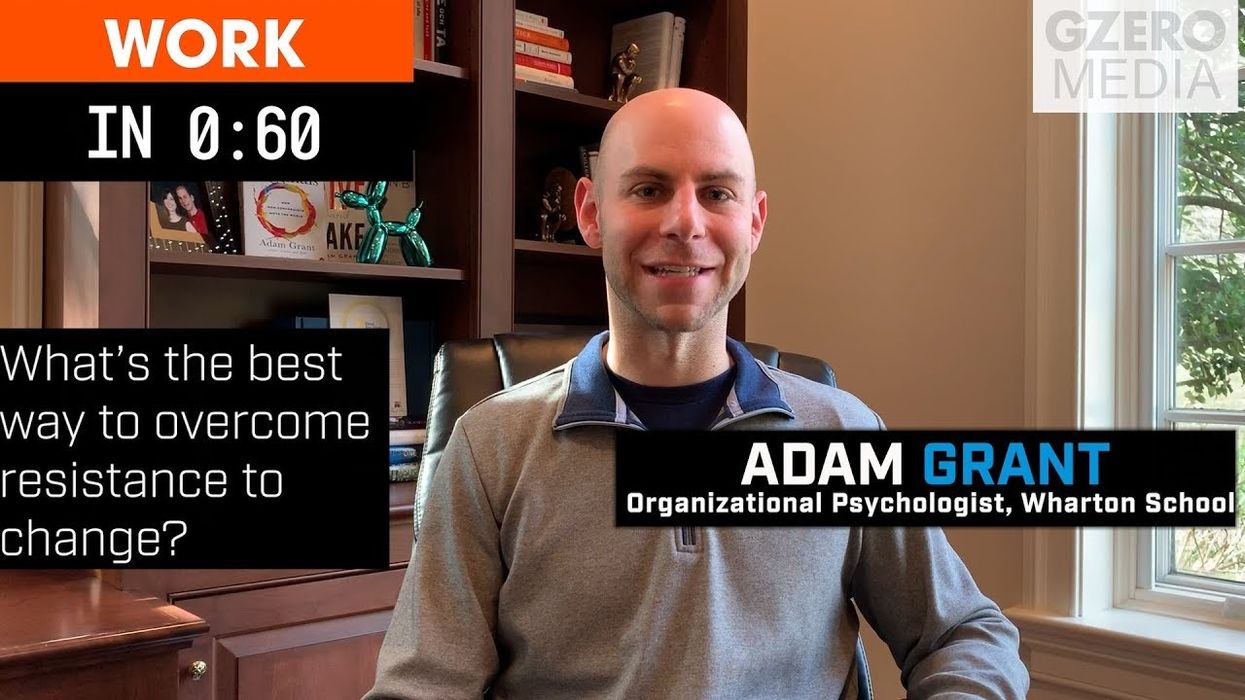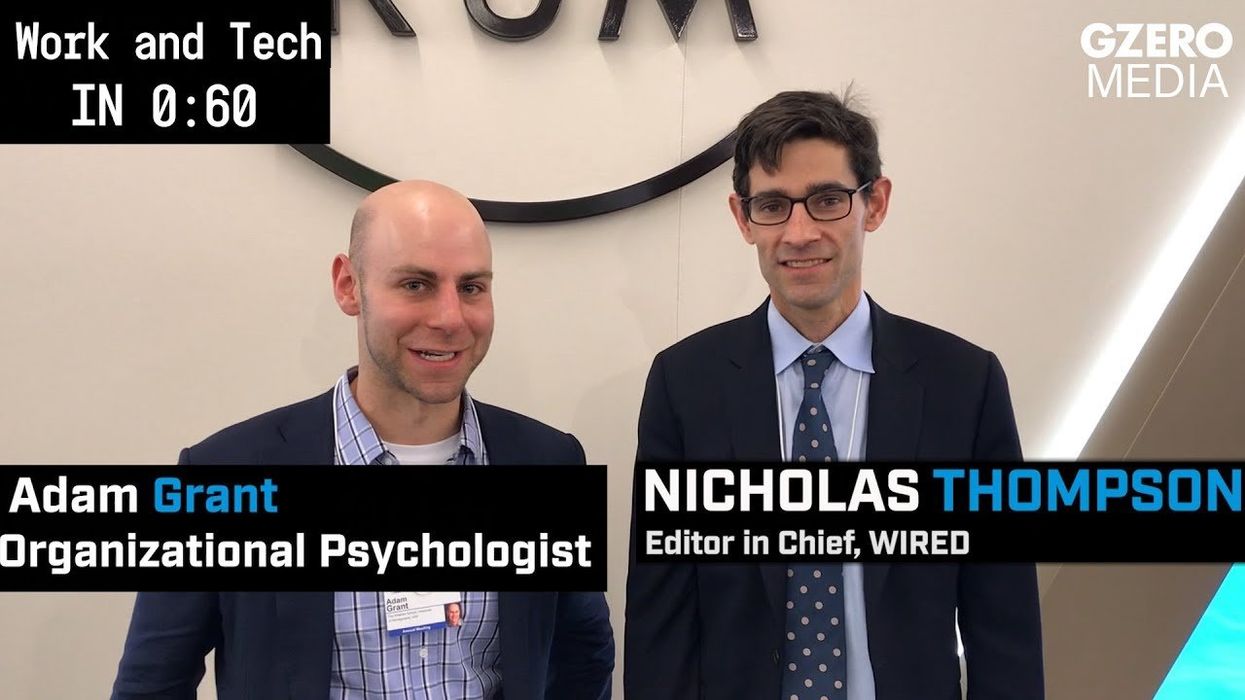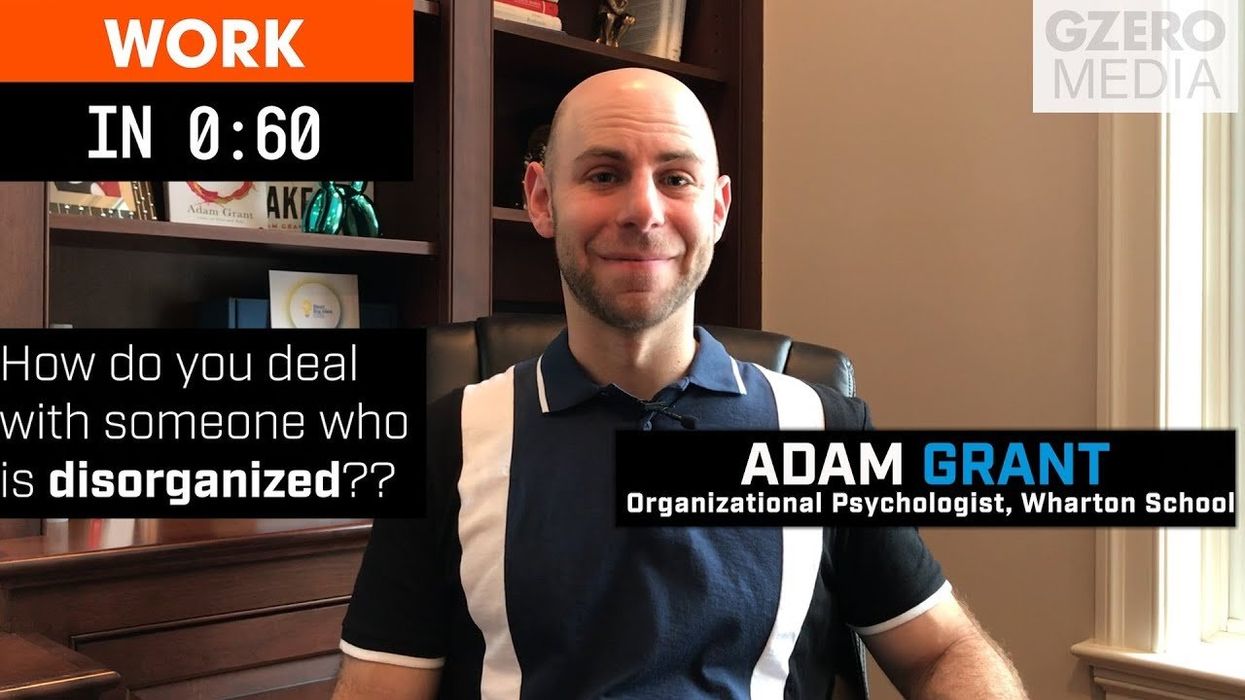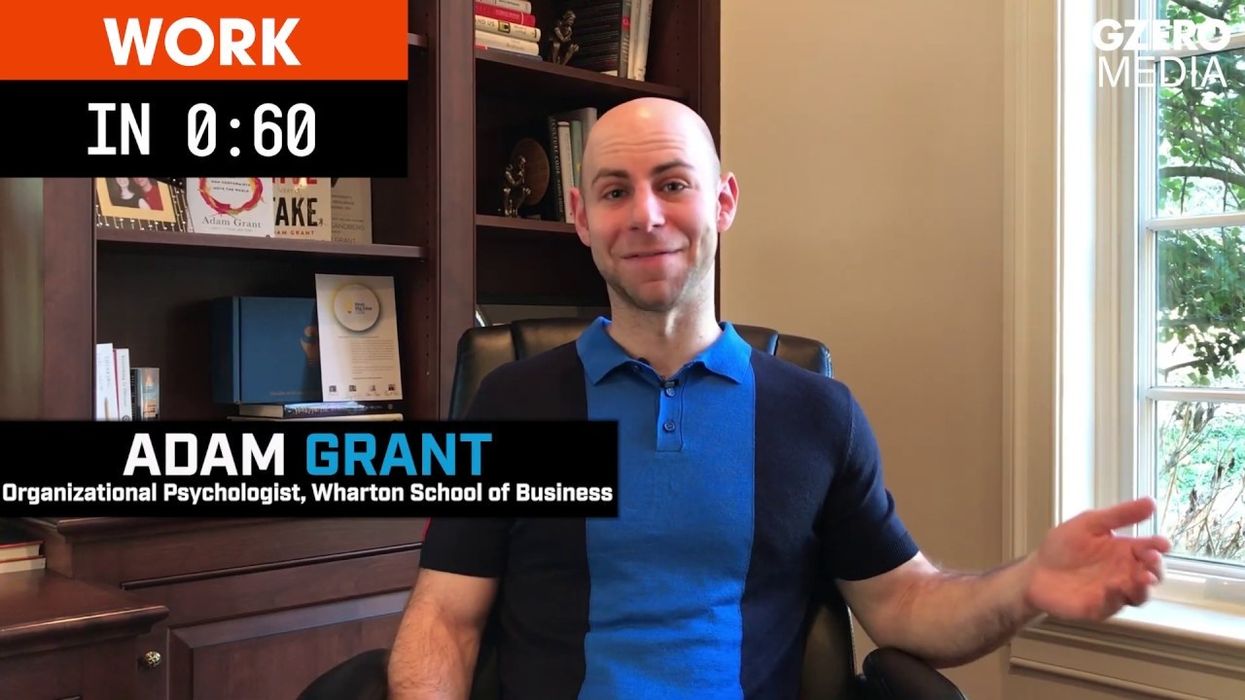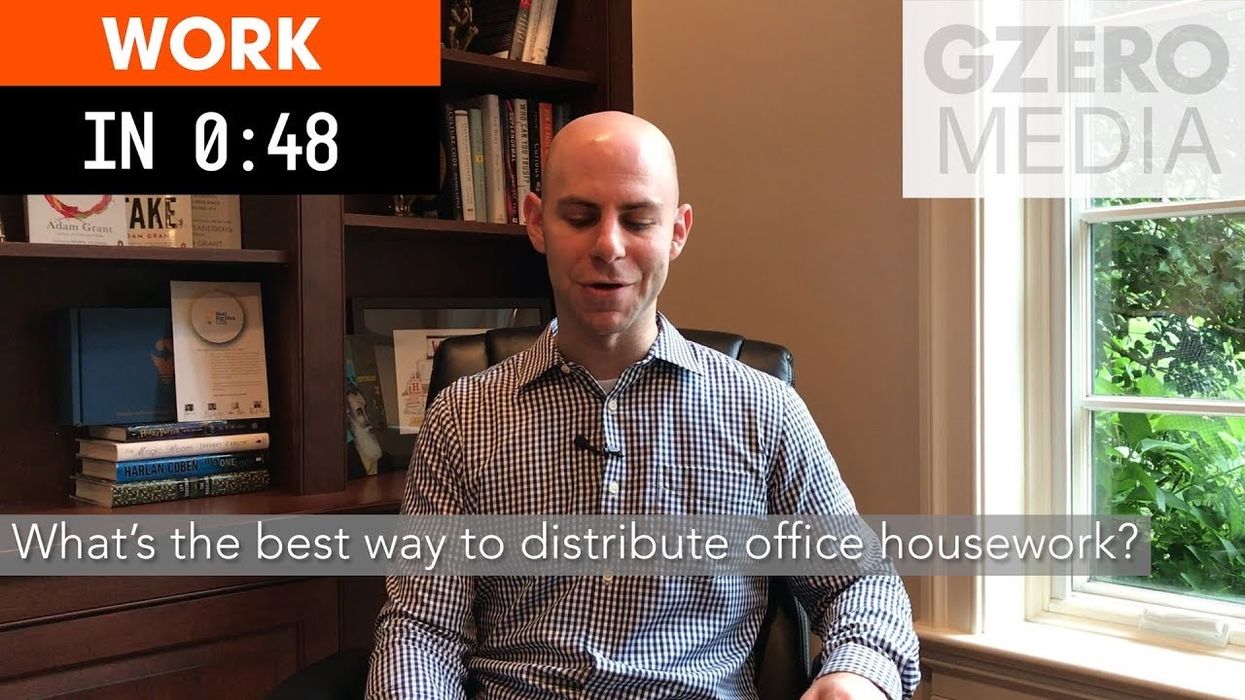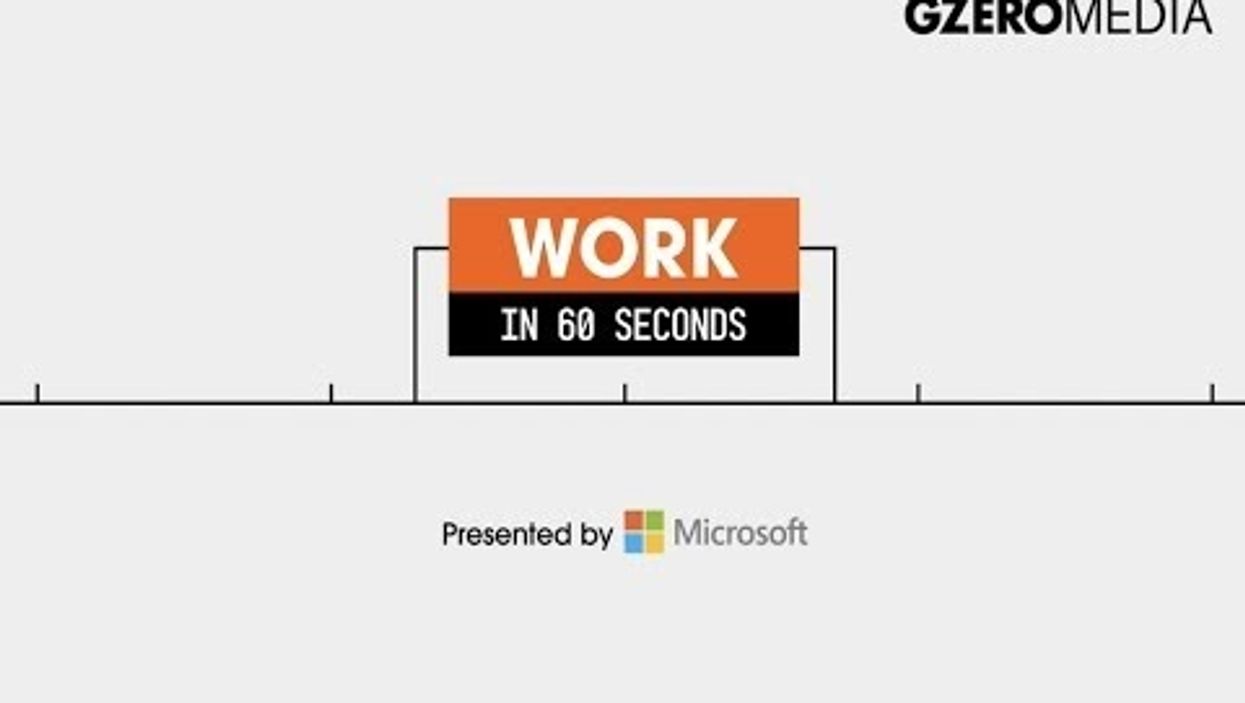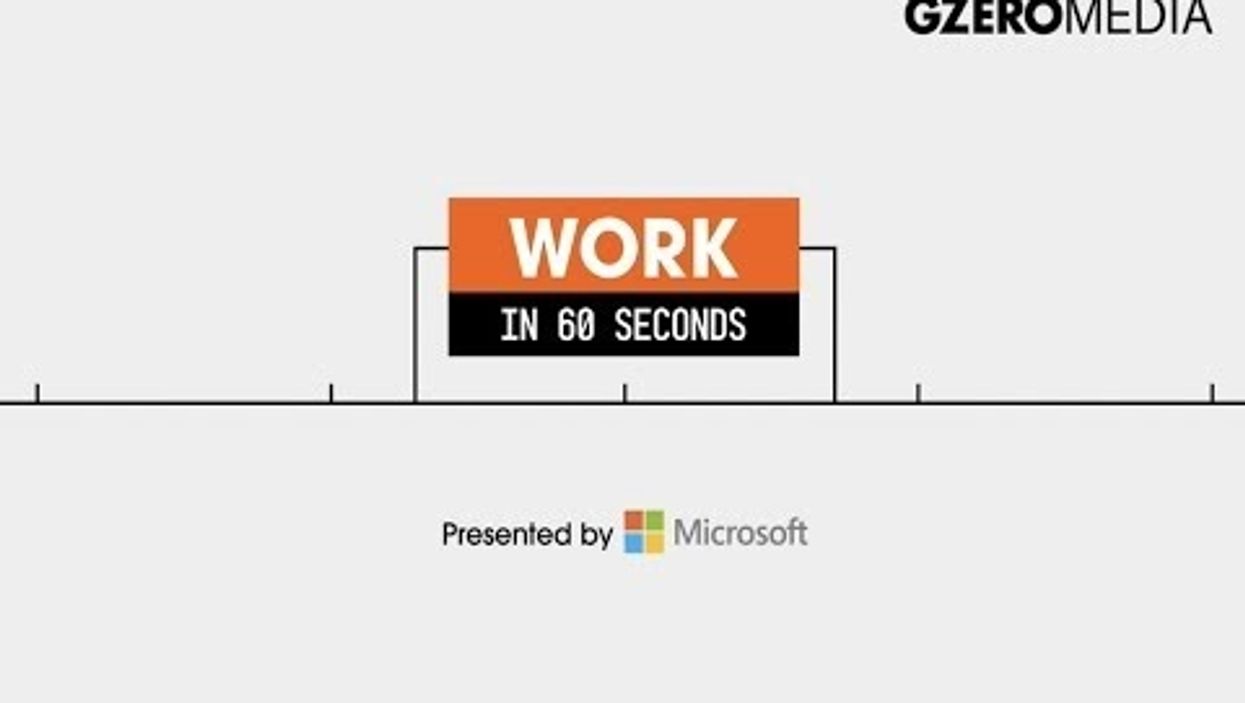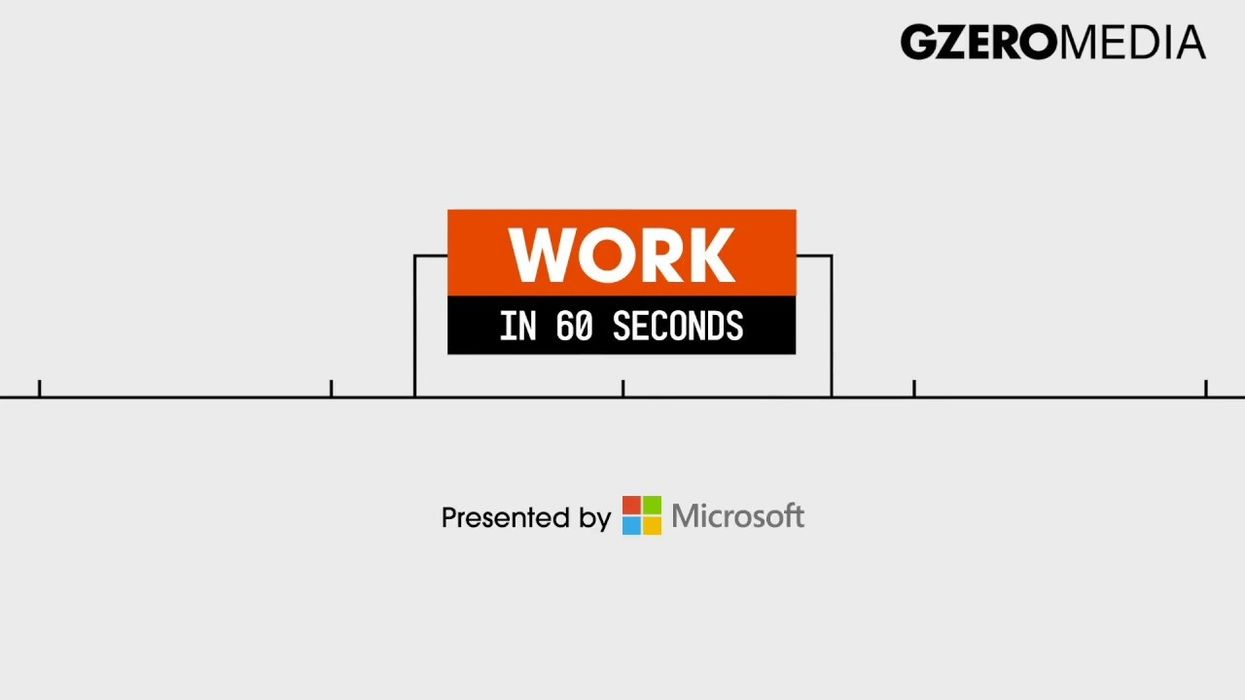VIDEOSGZERO World with Ian BremmerQuick TakePUPPET REGIMEIan ExplainsGZERO ReportsAsk IanGlobal Stage
Site Navigation
Search
Human content,
AI powered search.
Latest Stories
Start your day right!
Get latest updates and insights delivered to your inbox.
Work In 60 Seconds
Presented by
In a performance review, what's the right order of praise and criticism to give?
Well a lot of people love the feedback sandwich. You know where you stick the meat of criticism in between two slices of praise. But I have to say that's a bad idea because the feedback sandwich does not taste as good as it looks. My biggest problem with the feedback sandwich is that in our memories primacy effects and recency effect tend to dominate. We remember the things that happened at the beginning and at the end and whatever's in the middle often fades, which means people might forget the criticism altogether.
You actually just want to give one slice of praise along with your criticism not two. So what goes first? Should it be the good news or the bad news. I think the answer actually depends on the recipient's frame of mind. If the recipient is extremely open then you can actually come right in with the bad news. That also helps if they're nervous because as Dan Pink writes in 'When', we prefer sequences that rise rather than those that fall. And so you can end on a high note. If you tell them, "hey, here's the area that I'd love for you to work on and here's the one thing you did best."
But, if you have a defensive recipient somebody, who might be close minded or narcissistic then you actually want to go the opposite route. Psychologists call it self affirmation where you praise in one domain and then you criticize in a completely unrelated domain. And that way it doesn't sting as much, because you're not threatening their whole ego, you're telling them, "hey, you know what? You were really creative this quarter, your decision making was just terrible."
Keep reading...Show less
More from Work In 60 Seconds
What’s the best way to impress other people?
August 15, 2019
How to Interview Someone for a Job
August 08, 2019
What should you not say to a struggling coworker?
July 12, 2019
Why you shouldn't practice what you preach
June 07, 2019
How to Stay Motivated in Outer Space: Work in 60 Seconds
April 19, 2019
Who Should You Make Fun of At Work: Work in 60 Seconds
March 29, 2019
The Cost of Performance Incentives: Work in 60 Seconds
March 14, 2019
How to Avoid The Awkward Hallway Pass: Work in 60 Seconds
March 07, 2019
You're Not Morally Obligated to Answer Every Email: Work in 60 Seconds
February 21, 2019
How Your Work Life Can Improve Your Romantic Life: Work in 60 Seconds
February 14, 2019
Overcome Resistance to Change: Work in 60 Seconds
February 08, 2019
Work in 60 Seconds: Company Culture
January 31, 2019
Tech and Work in 60 Seconds: Straight from Davos!
January 25, 2019
Work in 60 Seconds: Disorganized People
January 17, 2019
Work in 60 Seconds: Holiday Burnout
December 28, 2018
Work in 60 Seconds: Make Interviews More Productive
December 21, 2018
Work in 60 Seconds: Perfectionists Don't Always Get Ahead
December 13, 2018
Work in 60 Seconds: Ditch Your 10 Year Plan!
December 07, 2018
Work in 60 Seconds: Optimal Turnover Rate
November 16, 2018
Taking Criticism, Speaking up, and new job offers
November 09, 2018
Group Meetings, New Teammates, and Compelling Arguments
October 25, 2018
Mentorship, Leadership and Failure vs. Success
October 11, 2018
Elevator Pitches, Intuition and Learning As A Leader
October 04, 2018
Bad Performance Reviews, Too Much Delegating, and Shorter Work Day
September 29, 2018
Job Quitters, Office Housework and Is Team Building Worth It?
September 13, 2018
Mentoring, open-plan offices and rude coworkers
August 09, 2018
GZERO Series
GZERO Daily: our free newsletter about global politics
Keep up with what’s going on around the world - and why it matters.
